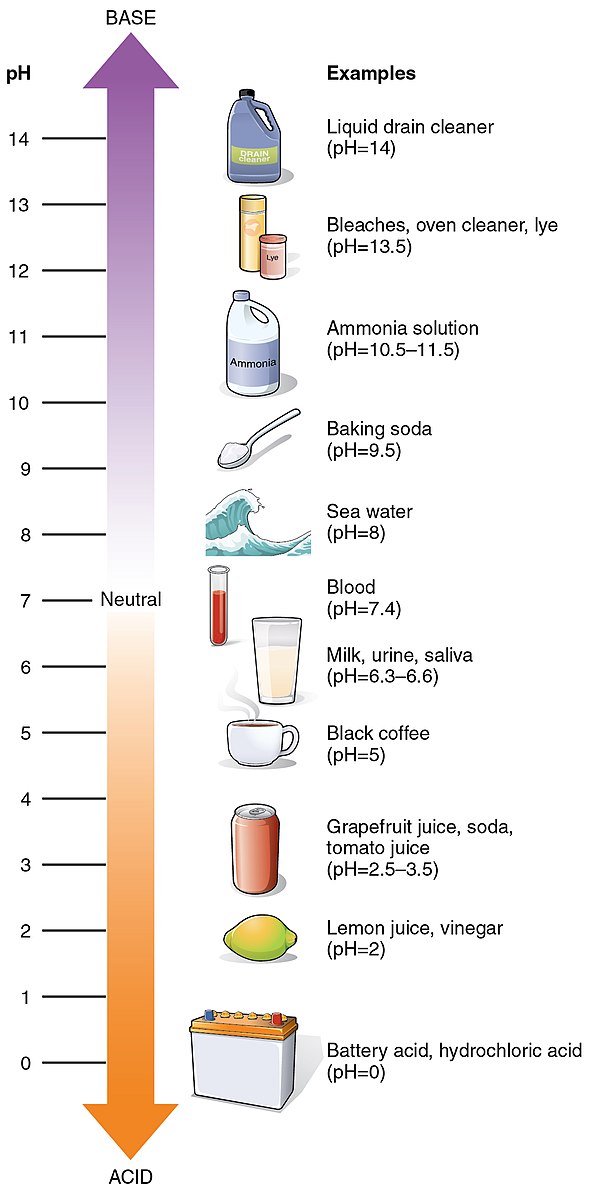The pH of guanidine hydrochloride in water typically ranges from 4.5 to 6.0, making it suitable for various applications in molecular biology, such as RNA purification and protein denaturation. This pH range is crucial as it affects the solubility and denaturing properties of the compound.
Understanding Guanidine Hydrochloride
Guanidine hydrochloride is a strong denaturant and chaotropic agent, meaning it can disrupt the structure of proteins and increase the solubility of hydrophobic molecules. It is commonly used in molecular biology for a variety of purposes, including:
- RNA Purification
- Protein Denaturation
- Protein Refolding
The presence of hydrochloric acid (HCl) in the formation of guanidine hydrochloride contributes to the acidic pH range of the compound in water.
Solubility and Concentration
 Image source: OpenStax College
Image source: OpenStax College
When preparing a solution of guanidine hydrochloride in water, it is essential to consider the solubility limit. The maximum solubility of guanidine hydrochloride in water at room temperature is approximately 6 M. To prepare a solution with a higher concentration, heating the solution to around 35°C for approximately 30 minutes is recommended.
Purity and Contaminants
When working with guanidine hydrochloride, it is crucial to be aware of potential contaminants and impurities. The product specifications from BioSpectra list various tests and requirements to ensure the purity and safety of the compound, including:
- Tests for bacterial endotoxins
- Chloride content
- Residue on ignition
- Solubility
These tests help ensure that the guanidine hydrochloride is suitable for its intended use, whether as an excipient, a denaturant, or a protein solubilizer.
pH Adjustment
To balance the pH of a guanidine hydrochloride solution, one can use various buffering agents or pH adjusters. For example, adding a base like sodium hydroxide (NaOH) or potassium hydroxide (KOH) can raise the pH, while adding an acid like hydrochloric acid (HCl) or acetic acid can lower the pH. However, it is essential to consider the impact of these additives on the solubility and denaturing properties of guanidine hydrochloride.
Conclusion
In summary, the pH of guanidine hydrochloride in water typically ranges from 4.5 to 6.0, making it suitable for its applications in molecular biology. When preparing or using guanidine hydrochloride solutions, it is crucial to consider the solubility limit, potential contaminants, and the impact of pH adjustments on the compound’s properties.
